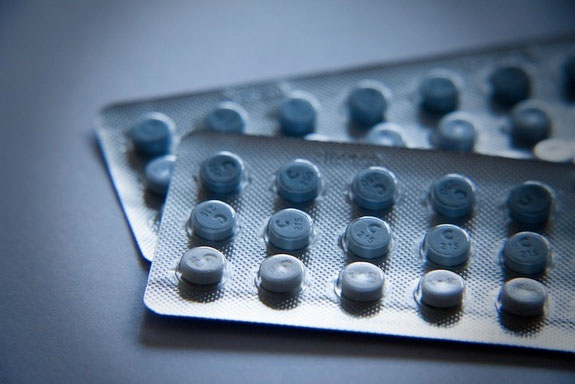Panic of tap water contaminated with birth control pills
Recently, Chinese people panic when they know the tap water they are using is infected with birth control pills.
After the popular ingredient in most contraceptives completes the task of preventing unwanted pregnancy, it will start a second life as a 'stubborn' pollutant, which transforms gender. count of many animals.
Specifically, ethinyl estradiol in oral contraceptives not only has a strong impact, such as making fish and amphibians transgender - but removing it from water is extremely difficult, so it is often found in lines natural water.
Because many women around the world use birth control pills, this is a global problem. The European Union (EU) is the first organization to set out to remove ethinyl estradiol (often called EE2) from water. However, as the researchers say, removing the substance is not easy.

Synthetic hormones in oral contraceptives work
big to many animals. (Source: Livescience)
The problem is that the cost to remove EE2 from water is very expensive. Estimating the cost to upgrade about 1,360 freshwater treatment plants in England and Wales to safety standards will cost up to $ 41-47 billion, GS. Richard Owen of Exeter University (UK) said.
'A big question is: are we willing to pay that huge amount to society? Or, in another way, do we like to live with that environmental impact? ' Owen said.
Commenting on the journal Nature, Owen and Susan Jobling, the scientist who studies the toxins in the environment at Brunel University wrote that more extensive discussions about the need for promulgating relevant regulations are needed. .
EE2, a synthetic hormone, is excreted in human waste by humans, accompanied by some other estrogenic substances. After EE2 joins the natural environment, the bodies of fish and frogs react to this hormone as if it is a natural estrogen, so the males are transgender, affecting the fertility of them. Transgender males usually produce eggs in their testes.
It is unclear whether EE2 in the country affects mammalian reproductive cycles.
Charcoal filter is the method of removing pollutants such as EE2 from the most efficient waste water. Other methods may also work, but require expensive investment, Ms. Jobling said.
According to Jobling, only when this problem is included in the policy discussion program will the new society not continue to transform the ecosystem further.
Reference: Livescience
- History of ups and downs of birth control pills
- There will be no birth control pills for men without side effects
- Successfully tested birth control pills for men
- Why do not have birth control pills for men?
- With just one injection, male birth control pills are up to 98% effective.
- New contraceptive pills for men
- Discover surprises about women who regularly use birth control pills
- Birth control pills change women's brains
- Contraceptives from toxins for men
- Birth control pills for men coming soon
- Birth control pills for men
- The US recovered 1 million birth control pills
 Green tea cleans teeth better than mouthwash?
Green tea cleans teeth better than mouthwash? Death kiss: This is why you should not let anyone kiss your baby's lips
Death kiss: This is why you should not let anyone kiss your baby's lips What is salmonellosis?
What is salmonellosis? Caution should be exercised when using aloe vera through eating and drinking
Caution should be exercised when using aloe vera through eating and drinking How do marine animals drink filtered water?
How do marine animals drink filtered water?  Discover the secret of the water buffalo
Discover the secret of the water buffalo  Shocking discovery about the Earth's 'tail'
Shocking discovery about the Earth's 'tail'  Top 10 Unbelievable Ways Animals Survive in Dangerous Environments
Top 10 Unbelievable Ways Animals Survive in Dangerous Environments  Mysterious wonders of the world
Mysterious wonders of the world  The largest animals that lived in the desert, still exist today
The largest animals that lived in the desert, still exist today 